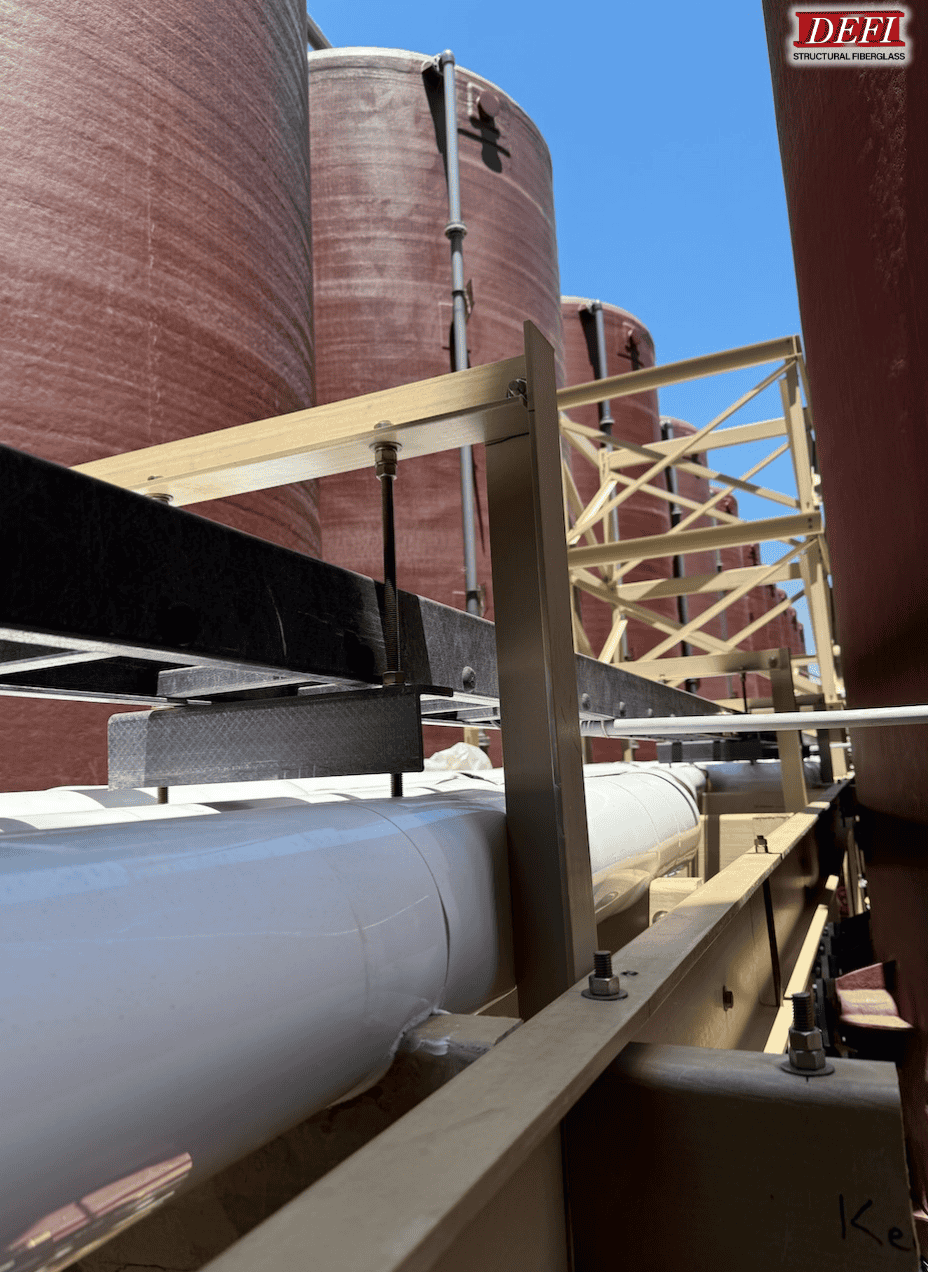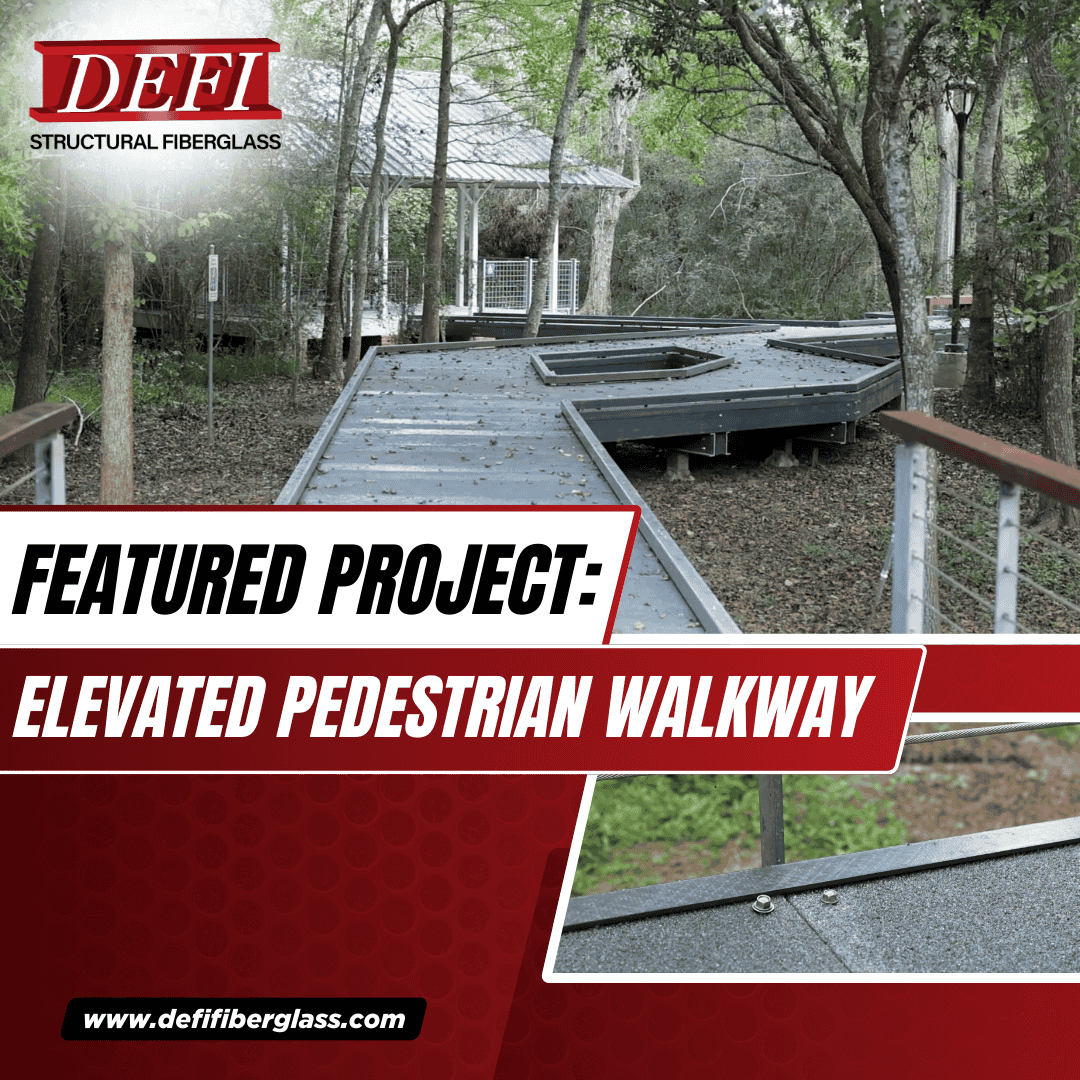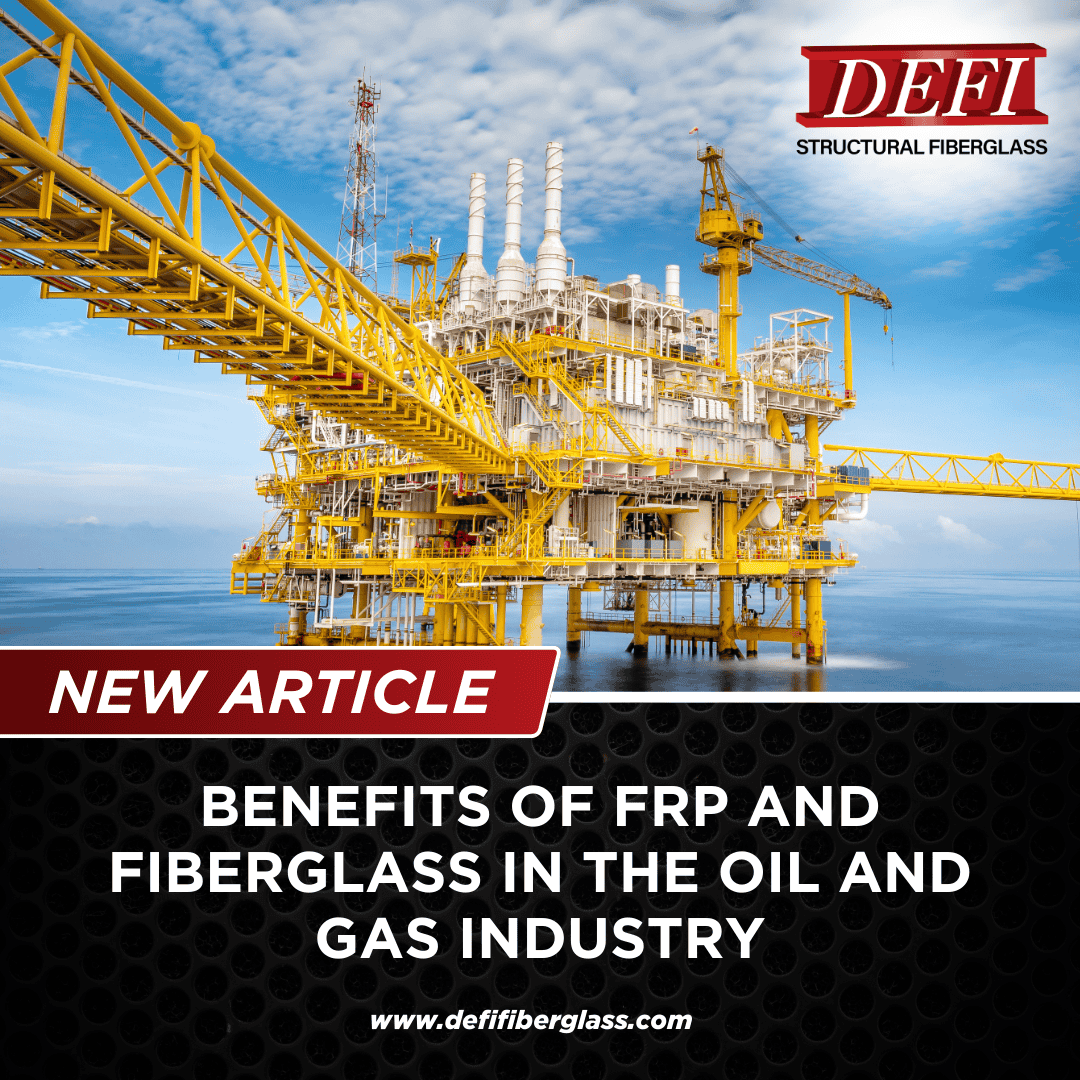Structural fiberglass is a form of FRP that is exploding in usage across a wide variety of industries. Its popularity is due to it being lightweight, stronger than most traditional materials, and more durable. It won’t corrode like steel, doesn’t rot like wood, and it maintains its structural integrity in the harshest environments.
These properties and more make it the ideal solution for building anything from bridges, cell towers, stadium seating, and more. While there are other composites on the market such as glass, carbon fiber, and others—structural fiberglass growth outpaces them all.
Some who may be reading this may still be hesitant to make the switch to structural fiberglass. Many simply don’t realize the longevity of the market for this game-changing material. However, the outlook for 2021 and beyond looks incredibly promising for structural fiberglass.
2020 WAS ROUGH FOR STRUCTURAL FIBERGLASS
While fiberglass is the dominant choice in the composites market regarding volume and value—in 2020 it took a hit. Of course, due to the unprecedented and unexpected COVID-19 pandemic, all composite sales took a hit—fiberglass included. As the pandemic and subsequent lockdowns decimated all manufacturing, it had a domino effect. Declines in demand for automobiles, aircraft, wind energy, as well as oil and gas, created ripples throughout the economy.
However, 2021 is four months in and finally, the economy and global marketplace are showing signs of life. While 2020 did indeed have a negative impact on fiberglass in the short term—it did not throw its growth trajectory off course, it merely delayed it.
The Big Comeback
As the industries heaviest hit by the global lockdowns due to COVID are ramping up production again, demand will continue to grow. As we progress through the fiscal year 2021 the momentum is expected to exponentially pick up. In fact, it is projected by 2027, that the global composites market will reach just over $161 billion. Of that, fiberglass is expected to account for the largest segment, gobbling up a fifth of the market globally. The global fiberglass market is expected to surge to $14.3 billion by Q4 of 2025. So, if you’ve ever thought about investing in fiberglass manufacturers—now is the time.
The bold projections aren’t just numbers thrown out by the industry players. It’s backed up by extensive market analysis and research from Markets and Markets. In their analysis, they see that the main reasons that are behind that surge involve two industries.
Automotive And Construction Industry Impact
The automotive and construction industry’s increasingly widespread usage of structural fiberglass is playing a major part in these projections.
Fiberglass in all forms is widely used in construction and not just for insulation despite it being king of that application. It’s being sought after for structural uses as well, especially regarding infrastructure such as decking, bridges, and even framing. Construction, in general, is projected to be one of the fastest-growing markets, with residential construction taking the lion’s share.
In the automotive industry, manufacturers are looking for sleek and seamless interior designs that reduce weight. Composites have long been used for racecars, but fiberglass is finding its way into many consumer vehicles over the last decade. With environmental regulations in the U.S. demanding more energy efficiency, cars must shed weight to meet standards. With fiberglass being a fraction of the weight of steel without sacrificing strength—it’s a no-brainer.
WHERE DOES STRUCTURAL FIBERGLASS FIT IN?
As structural fiberglass has been around for several decades now, industries have found ways to take advantage. Now, it’s is being used to manufacture components such as blades for wind energy farms, helicopters, and other industries.
You’ll find fiberglass is a commodity in just about every industry and market in some form or fashion such as:
- Sporting Goods—Surfboards, skis, bicycles, football training equipment
- Athletic and Work Footwear— Protective toe caps, foot shank, spacing truss
- Playground Equipment—Climbing structures, swing sets, slides
- Marine—Docks, boat slips
- Meat Packing—catwalks, platforms, stairs, handrails
- Oil and Gas—Wellhead platforms, subsea skids
The flexibility of structural fiberglass which is produced by pultrusion is what makes so many product builds feasible. If you’re not familiar with what pultrusion is, you can learn more here. In a nutshell, pultrusion is a process for turning reinforced fibers and polymer resin into FRP that is tough, versatile, and light.
With pultrusion, we can use a wider variety of resins in combination with reinforcements that add unique and valuable traits to the end product.
Through pultrusion, DEFI can deliver:
- More durable components that possess higher tensile strength than molded FRP products
- Profiles that you can’t achieve with other FRP manufacturing processes
- Massive products since pultrusion creates a nonstop flow of FRP
Ultimately, with DEFI structural fiberglass you get strength and precise design that is superior to other FRP types.
THE ADVANTAGES OF PULTRUDED FRP
While FRP, in general, has so many advantages over traditional building materials, pultruded FRP also goes a step further. There are a few critical advantages that make it so valuable in manufacturing products in every industry.
Pultruded FRP Is Lighter And Just As Strong
Pultruded fiberglass is very lightweight—about 30% lighter than aluminum and a whopping 70% less than steel. One would think that because it’s so much lighter that it must be weaker—WRONG. It’s actually stronger than aluminum and as strong as steel. Additionally, steel doesn’t have any flex and can dent with impact. Fiberglass, on the other hand, has some flex and is far less prone to deformation or denting.
The combination of reduced weight without a downgrade in strength delivers huge advantages in manufacturing. It also reduces workplace safety hazards since it doesn’t require heavy and dangerous equipment to move.
It’s Non-Conductive
Fiberglass FRP is an ideal material for protecting workers from hot or electrically charged components. Materials such as aluminum or steel easily conduct electricity and heat whereas fiberglass doesn’t. Because of its insulative quality, our structural fiberglass has multitudes of applications for the safe handling of metal objects. Components such as tool handles or casings on components that may get hot can be made from fiberglass without the risk of burning someone.
Fiberglass FRP Does Not Corrode
Steel and wood both are vulnerable to breaking down due to various weaknesses. Steel corrodes due to exposure to moisture, acids, and other corrosives. Wood rots from exposure to water, termites, and it can also catch on fire and burn.
Fiberglass doesn’t have this problem; it can endure an environment of the harshest corrosives and not degrade. It can withstand deep-sea applications and not corrode, not to mention it is resistant to fire and extreme temperatures. This makes it ideal for outdoor uses or environments such as water parks or oil rigs with a corrosive environment.
With this corrosion resistance also comes another benefit—it’s ultra-low maintenance. Where wood and steel frequently need shoring up or sealants to endure, fiberglass can be left alone with no issues.
It’s The Most Versatile Material Available
Fiberglass is hands-down, the most versatile manufacturing material there is on the market. Through pultrusion methods used at DEFI, you can fabricate any shape and profile. This includes common shapes such as square tube, channels, equal angles, and custom profiles as well. Additionally, custom shaping is far less costly than with wood or steel. It’s ideal for very intricate or customized applications.
WHEN YOU NEED THE BEST IN STRUCTURAL FIBERGLASS
Whatever project or application you need superior materials for— DEFI can meet and exceed your expectations. Our custom fabrication shop handles some of the most intricate applications in industrial manufacturing.
Contact us today and let us help you build something that lasts.



